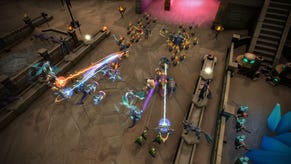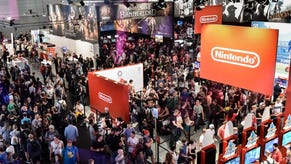GAME's long-term vision is to sell contracts, not hardware
CEO intends to model retail business on Carphone Warehouse, says consultant
High Street retailer GAME eventually sees itself as a broker between digital technology companies and consumers, selling contracts to customers rather than physical hardware and software.
That's the vision of CEO Ian Shepherd, according to consultant Nick Parker, who said the video game specialist intends to model itself on the Carphone Warehouse business.
"With OnLive and GAME it's no coincidence that they're going into business. I sat down with Ian Shepherd a couple of weeks ago and his vision is seeing GAME like Carphone Warehouse, whereby Carphone Warehouse doesn't actually sell anything at all, no product, no hardware, it just sells contracts," he told the London Games Conference.
"And they see themselves doing the same thing - selling contracts for OnLive or any other technology provider or source of games and then hardware can eventually be offered for free."
GAME became the first retailer to partner with US firm OnLive, selling its consoles in-store when it launched in the UK this year. And like multiple games retailers, it already has a credible business in selling pre-paid credit and games cards to consumers.
It's not just GAME that is following this business model, said Parker, companies like Amazon, LoveFilm and GameStop are on a similar path and partnering with new entrants like Gaikai and OnLive.
"Online retailers are already trialling technologies and providing brokering services for those companies," he offered.
While new entrants to the market are pushing cloud-based gaming technology, Parker predicts that the older console manufacturers will still play a significant role in the new digital games ecosystem, offering hardware as a token gesture to retail and delivering content online.
"These guys are already developing compression technologies - you may say they are the old console guys - but they still have an installed base."
"It could be a hybrid expansion of their current core processing technology with some internet connectivity, perhaps not disc-based but certainly with a disc as an add-on peripheral. So there's something to sell at retail. They are certainly going to be big players and 2014 is the tipping point when these consoles will be out," he added.
Publishers will also adapt to digital markets, with EA's Origin a recent example of connecting directly with the consumer.
"The publishers want to be everywhere, wherever there is a touch point with the consumer and they are not going to be proud about that," he said. "They will develop their own means to do it."
Update: Nick Parker has contacted GamesIndustry.biz to suggest that Ian Shepherd's remarks were not a definitive statement of GAME Group strategy, and that his conversation with the CEO was part of a wider debate about how games retail could evolve.







